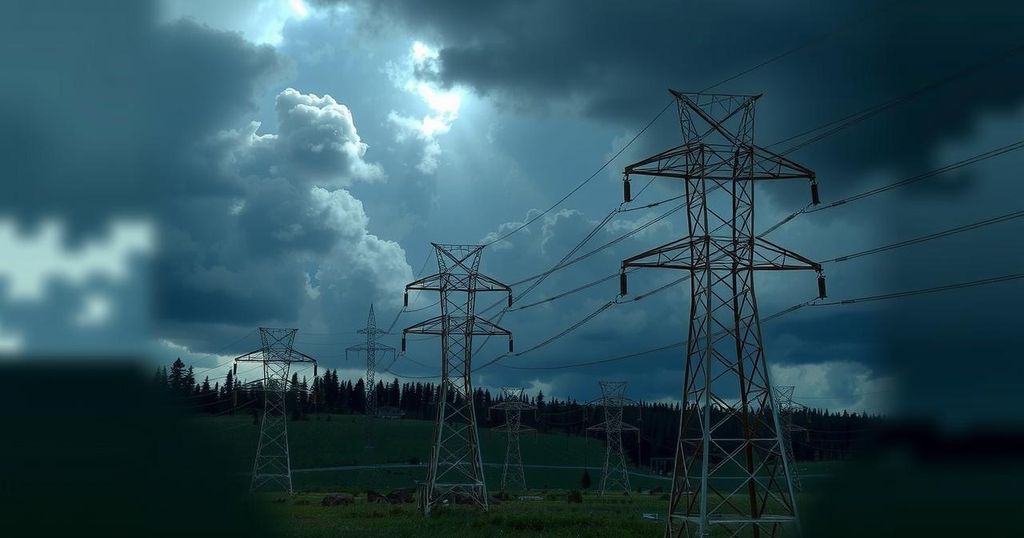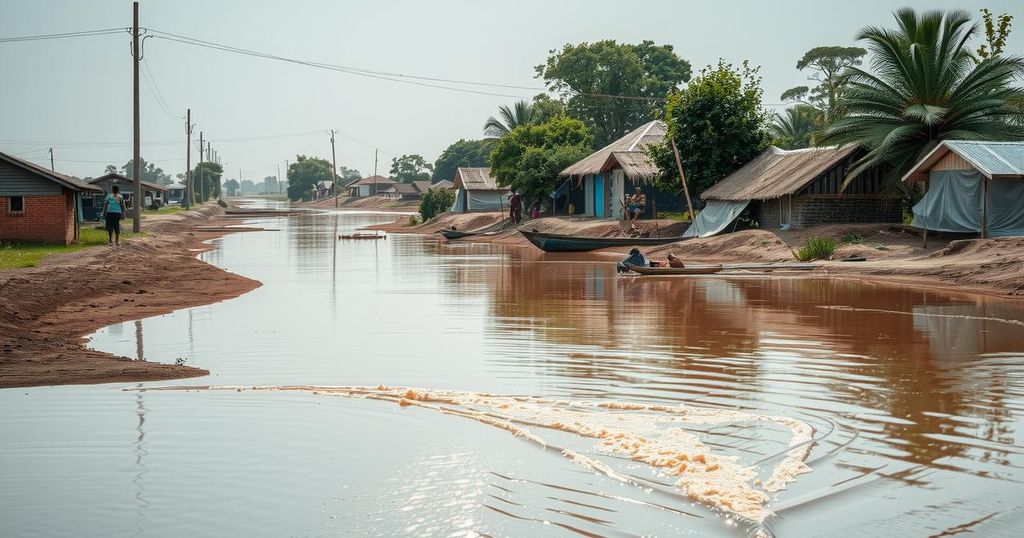Bomb Cyclone Unveils Weaknesses in Western Washington’s Electrical Grid
A bomb cyclone recently devastated Western Washington’s electrical grid, causing power outages for approximately half a million residents and exposing significant vulnerabilities. Utilities are under pressure to upgrade infrastructure and shift to renewable energy sources due to increasing electricity demand and state carbon-free mandates. Operational challenges, particularly concerning communication and resource management during emergencies, were highlighted, emphasizing the need for comprehensive reforms to enhance resilience against future challenges.
The recent bomb cyclone that affected Western Washington highlighted critical vulnerabilities in the region’s electrical grid, resulting in power outages for approximately half a million residents. This unprecedented storm, characterized by hurricane-strength winds, caused significant damage by uprooting trees, which in turn disrupted power lines and left many areas without electricity for extended periods. Utility companies face a daunting challenge, as the storm exposed the urgent need for major upgrades while transitioning to renewable sources and modernizing transmission lines to comply with the state mandate for carbon-free energy by 2045.
Experts assert that a comprehensive overhaul of the entire power infrastructure is essential. They emphasize the necessity for increased power generation capacity and the need for more skilled electricians for grid maintenance. As the demand for electricity continues to surge, especially amidst challenges posed by climate change, the pressure is mounting on utilities to rapidly diversify energy sources, including robust investments in renewable energy and battery storage.
Despite the cyclone not being directly linked to climate change, the impact of increasing extreme weather events may strain utility resources and communication efforts significantly. Outages lasting several days disrupted crucial services, including hospitals and emergency communications, raising concerns over the preparedness of utilities in crisis situations.
Furthermore, the operational deficiencies of Puget Sound Energy (PSE) were notably highlighted during the storm, as officials struggled with inefficient communication regarding restoration timelines. Similar concerns arose from hospitals, further complicating efforts to prioritize affected services.
Despite the obstacles, some utilities were able to react swiftly. Seattle City Light managed to reduce power outages after the initial storm impact, demonstrating a level of preparedness albeit hindered by a shortage of available workforce. This situation calls for a unified and innovative approach towards enhancing grid resilience, encompassing the integration of localized battery storage systems and potential microgrid developments.
In conclusion, the bomb cyclone acted as a wake-up call for Western Washington, urging utility companies and lawmakers to prioritize significant advancements to the electrical grid. Only through a coordinated approach can the region fortify its infrastructure against future climatic challenges while maintaining reliable power supply for its residents, particularly the most vulnerable communities.
The Pacific Northwest’s energy grid faces increasing pressure from rising electricity demand, severe weather events, and the imperative to transition from fossil fuels to renewable energy sources. Recent events, such as the bomb cyclone in Western Washington, exposed the weaknesses in this infrastructure, raising alarms over the capability of utilities to respond effectively to emergencies. State mandates aimed at reducing carbon emissions by 2045 further complicate the existing challenges, necessitating urgent reforms to bolster grid reliability and resilience.
In summary, the bomb cyclone that struck Western Washington serves as a pivotal moment in recognizing the deficiencies of the region’s electrical grid. To ensure reliability in the face of increasing electricity demands and frequent severe weather, it is imperative that utilities prioritize infrastructural upgrades and expand their workforce. Additionally, the integration of renewable energy solutions and battery storage must be accelerated to create a more robust energy system capable of withstanding future challenges.
Original Source: www.seattletimes.com




Post Comment